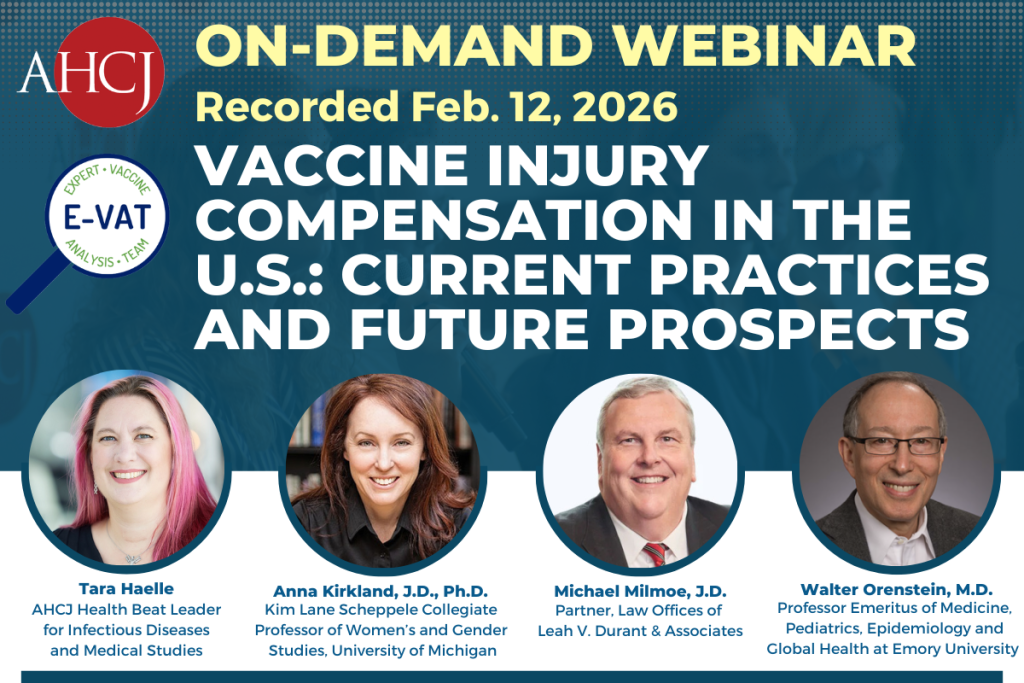Health Beat
Monitoring the Pulse of Health Care Journalism
Ad
-
How to care for your mental health over the next few years
A second Trump administration will likely make health reporters’ jobs more chaotic (again). Here’s how journalists — and a psychologist…

-
New issue brief documents what’s at stake if Medicaid HCBS are cut
A new KFF report lays out how much states rely on Medicaid HCBS to pay and assist caregivers, and how…

-
Private equity and the money behind nursing homes
As more nursing homes come under private equity ownership, one troubled chain is now mandated to complete its sale under…

-
Vaccine injury compensation in the U.S.: Current practices and future prospects
In this webinar, hear from the Expert Vaccine Analysis Team about potential big changes to the federal Vaccine Injury Compensation…

-
Deep federal cuts will make health care financially toxic, driving up medical debt
Federal cuts to Medicaid, Medicare and other health programs will make it much more difficult for families to pay for…

-
How reporters can use The Trace’s Gun Violence Data Hub
We checked in with Aaron Mendelson, the news developer for the Gun Violence Data Hub, to talk about how the…

-
Is ICE undermining patient privacy by using Medicaid data?
A December court decision allowed federal ICE agents to use Medicaid data to identify where people live as part of…

-
Why Native health care should be on your radar
Native American health care sits at the intersection of federal responsibility, chronic underfunding, and widening health disparities.

-
‘Starved in jail’ is a story in every U.S. county
Sarah Stillman’s piece “Starved in Jail” asks why incarcerated people die of neglect when private companies are paid millions for…

Featured Resources
Work the Health Beat.
Get exclusive news and training opportunities from AHCJ in your inbox once a week.















